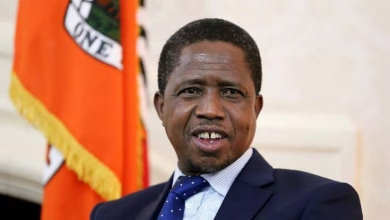Kenya’s political landscape has been turbulent since March, primarily due to widespread protests over the escalating cost of living and unpopular tax hikes. These events have set the stage for a significant political move against Deputy President Rigathi Gachagua, who is facing impeachment charges from lawmakers. The protests, which erupted in response to proposed tax increases, reflect growing public discontent with the government’s approach to governance, culminating in more than 60 fatalities during the demonstrations.
The impeachment motion against Gachagua has gained considerable traction, with 291 members of Parliament signing in support, far exceeding the required minimum of 117 signatures. This overwhelming backing underscores the seriousness of the allegations against him, which include undermining the government, involvement in corruption, and engaging in ethnically divisive politics. National Assembly Speaker Moses Wetangula confirmed that the motion, initiated by Mutuse Eckomas Mwengi from the ruling coalition, has met all necessary constitutional requirements for consideration.
The motion outlines 11 specific grounds for Gachagua’s impeachment, highlighting accusations of corruption and wealth accumulation that allegedly far exceeds his official earnings. It claims that he has amassed a staggering property portfolio worth approximately 5.2 billion shillings (around $40 million) in just two years, despite an annual salary of $93,000. Mwengi referenced the notable Treetops hotel, historically significant as the site where Princess Elizabeth became queen, as part of the evidence supporting these claims.
Gachagua, a prominent businessman from the politically influential Mt. Kenya region, has vehemently denied the allegations, describing them as politically motivated. He has expressed concerns that his impeachment could incite unrest among his supporters, particularly in his stronghold, where he previously campaigned successfully alongside President William Ruto in the closely contested 2022 elections. Despite these denials, Gachagua has recently voiced feelings of being marginalized within the administration, particularly amidst rising accusations of supporting anti-government sentiments among younger Kenyans since June.
The backdrop to the impeachment motion also includes significant political events, such as the protests triggered by the government’s 2024 finance bill, which proposed tax hikes that were met with public outrage. The backlash revealed broader dissatisfaction with President Ruto’s governance style, which many perceived as top-down and unresponsive to the needs of the populace.
For the impeachment to be successful, it must secure a two-thirds majority in the National Assembly, with a debate and vote scheduled for the upcoming Tuesday. If the motion passes, it will move to the Senate for further consideration. If approved there, Gachagua will make history as the first deputy president in Kenya to be impeached since the adoption of the country’s revised constitution in 2010.
Historically, the last significant political resignation in a similar context occurred in 1989 when then Vice-President Josephat Karanja stepped down amid impending impeachment proceedings. The current political climate suggests that if Gachagua’s impeachment progresses, it could have far-reaching implications for Kenya’s political stability and governance, especially in light of the deepening public grievances over economic hardships and government accountability.
